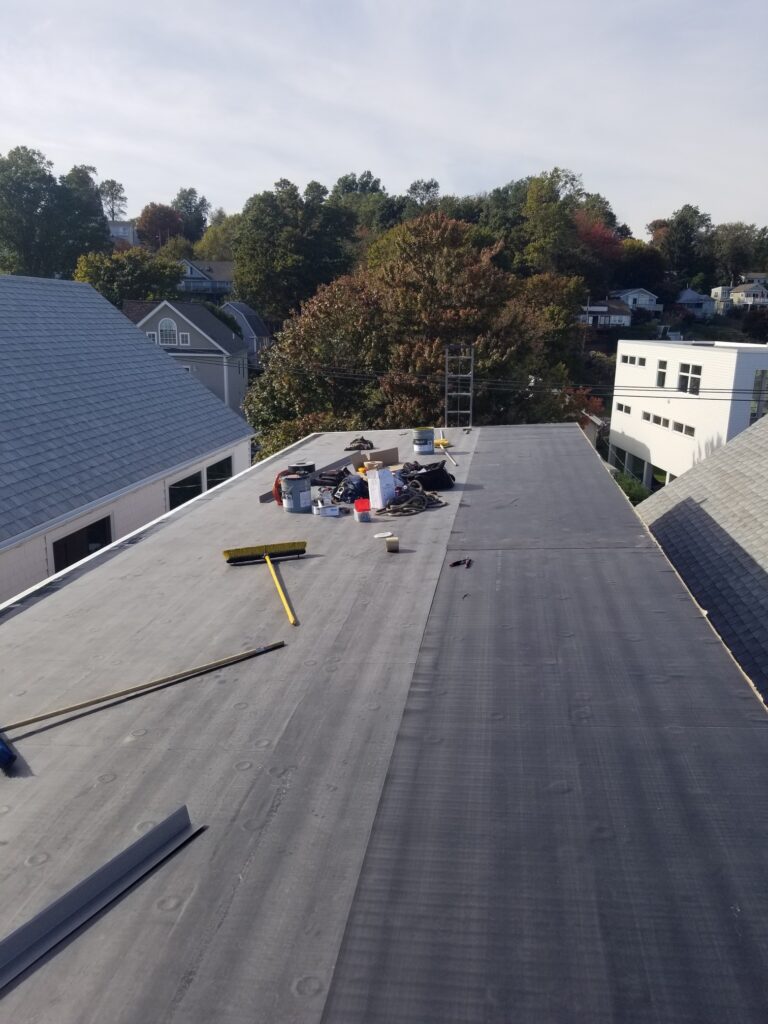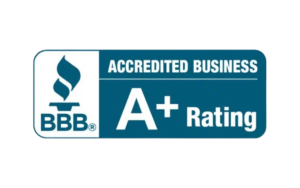Milford, CT experiences harsh winters and scorching summers. In the summer season, the closeness to the shore makes the humidity levels pretty high. In winter, people have to shovel the snow before going to work. While the weather makes things rough, how does your house, and more importantly, the roof of your house bear it all?
Because the weather in Milford is harsh, a well-maintained roof is important to keep your home protected. Your electricity bills will skyrocket if your roofing isn’t playing its part in keeping your home insulated. The right roofer would know which materials to pick for the best outcome.
But how do you find the right roofer?
Don’t fret, because we are here with a comprehensive guide at the end of which you’ll know everything there is to selecting the right roofer.

Researching Roofing Contractors
The first step in selecting a roofer is researching the roofing contractors in the area. You can use the internet to search for businesses with great customer ratings on Google. Yelp can help you with photo proofs. Trustpilot is also a trusted platform where you can find authentic comments.
Better Business Bureau (BBB) is also a great platform for seeking reviews and accreditations.
But even if your secondary research is solid, nothing is better than direct information. So, if you have friends or family who have had their roofing done, don’t hesitate to ask them about their experience.
Checking Credentials
Once you have the information, check for the credentials. One of the main things to look out for is license and insurance. Ensure the contractor is licensed to operate in Connecticut so you know that they adhere to all local regulations and industry standards.
Insurance is also very important as without it, businesses should not operate. If they have their workers’ compensation insurance in place, chances are that they will have most things in the right order going forward.
Another thing to look out for is certifications from organizations like the National Roofing Contractors Association (NRCA). Affiliations with reputable industry associations also indicate quality and professionalism.
Evaluating Experience
Although many new roofing companies have licenses and accreditations, experience does count. A longer track record of successful projects means the business is reliable and will do the job well and on time.
If you have a large-scale project, make sure the company you are considering has experience working on similar projects. Experience with different roofing materials and techniques is also something to inquire about.
Obtaining Estimates
By this step, you should have finalized at least three different contractors. Reach out to them to obtain the estimates for your roofing job. Estimates from different businesses allow you to compare the services they are offering and whether they offer value for money or not. However, don’t pick the lowest price. Always consider the following when you are comparing quotations:
- Materials: The type of roofing material offered vs what you prefer.
- Labor: Clearly outlined labor costs.
- Permits and Fees: Clarification on permits and fees being included in the estimate.
- Cleanup: Verify that debris removal is included in the price.
- Warranty: Warranty coverage for materials and labor.
Comparing Services
Two of the most important factors when comparing services are the materials being used and the warranty options. The best roofers will always offer you maximum warranties. Like Advantage Roofing in Connecticut which offers a 10-year labor warranty and uses Mule-Hide products.
Also consider factors like durability, energy efficiency, and aesthetics while comparing materials. While comparing services, don’t forget to inquire about the warranty’s duration and any limitations.
Assessing Communication
If everything else is on point, there’s one last thing to consider which is communication. Any professional service will make sure that the client is heard. Their representatives will be highly responsive and maintain professionalism throughout the period. They will listen to your queries and requirements before giving you an estimate and will make sure to clearly and effectively communicate everything.
Another thing to do is ask questions about your roofing needs to gauge their knowledge. Professional representatives will patiently answer everything and guide you in the best possible way.
Reviewing Contracts
Once you’ve finalized the contractor, there’s still one thing left to do. You will have to review the contracts and make sure that everything is clearly stated including the project scope, the timeline, and even the warranty information.
Well-written contracts also add a dispute resolution section that you should understand well before signing the document.
But why is a well-written contract important?
It is important because it protects both the customer (you) and the contractor (roofing company).
If things are unclear or not mentioned on the contract, don’t hesitate to ask questions!
Final Tips
Even if you have verified everything according to the list above, a good tip is to trust your gut. If a contractor doesn’t feel right, and has been MIA prior to getting back to you, stop right there. Trust is everything, but if it’s not there, your project might not go on smoothly.
Another very important tip is to choose a local contractor. The local roofers are aware of the climate and how it affects roofing. They will suggest you the best solution for your home. They will also be familiar with the building codes. So, local is better for home jobs.
Conclusion
When you’re selecting a roofer for your home, make sure you thoroughly research about the contractors available in your area. Once you’ve shortlisted a few, check their credentials and evaluate their experience. Cut down your list to at least three contractors and approach them for quotes.
During the conversation, the representatives who share the most knowledge and are the most clear about the process are your best bet. However, it is important to compare all the services each roofer offers and then make the decision.
Even after you’ve made the decision, there’s one more thing to do. You must review the contract thoroughly before finalizing the deal. This can help protect both you and the contractor.



